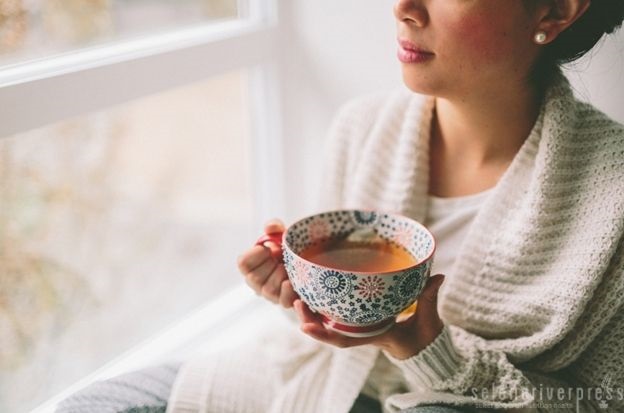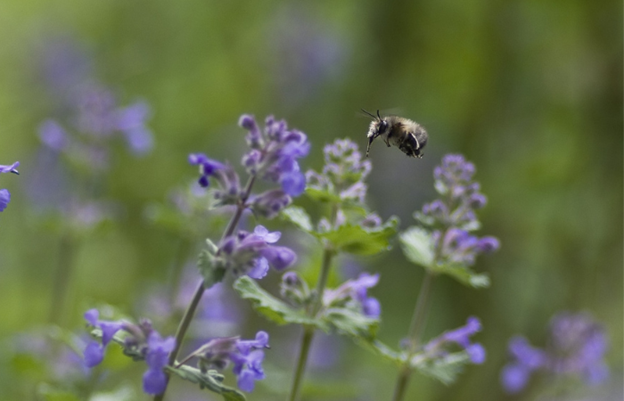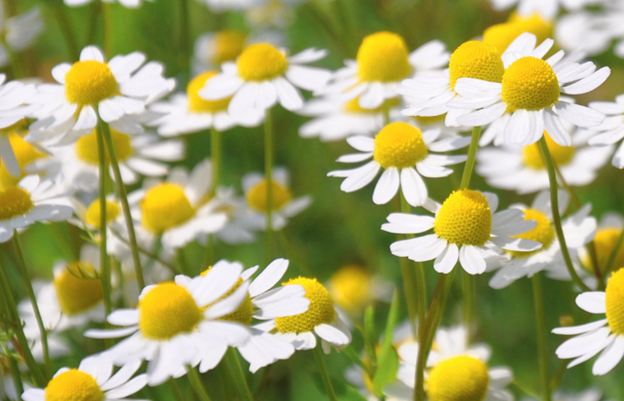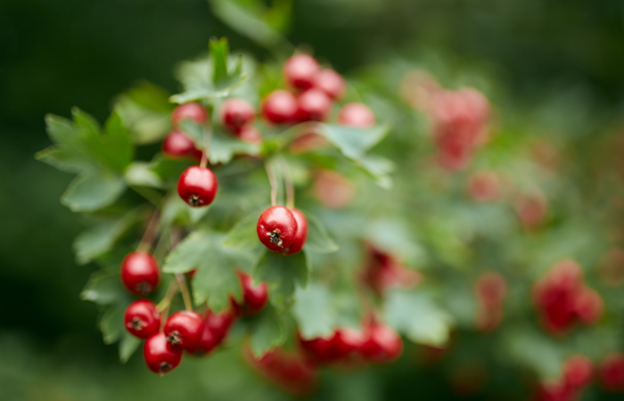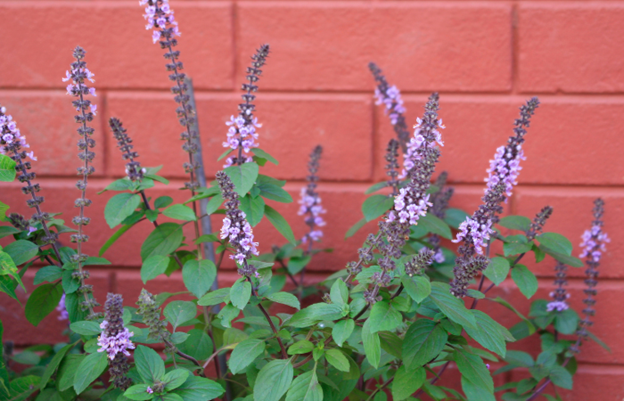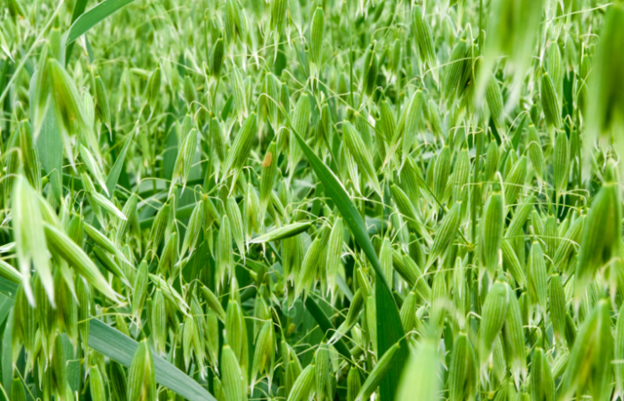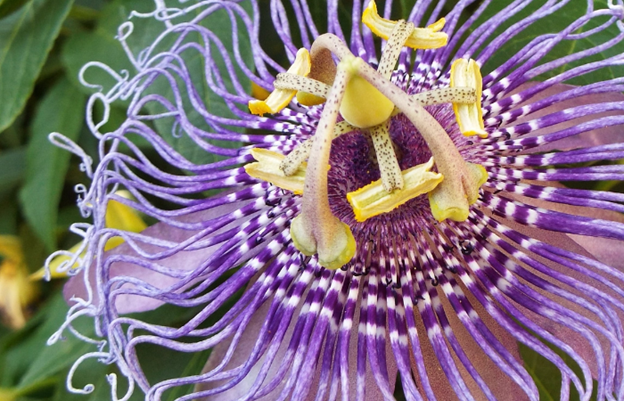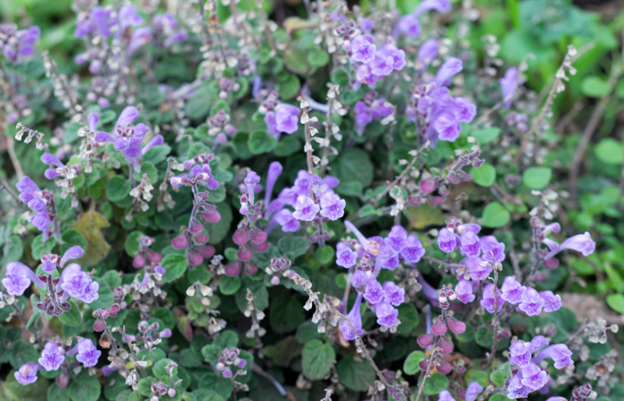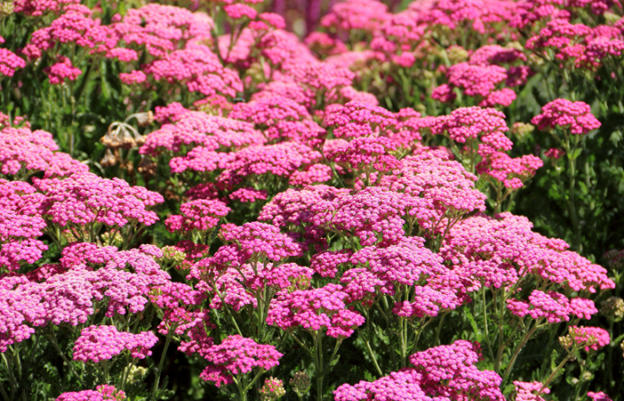Reprinted with permission from Tracey Turner and Spirit of the Bear.
Emotions and stress levels are high during these challenging times. We’re all feeling them swirling in and around us. Thankfully Mother Nature has gifted us with herbs that help to comfort and calm us when we feel out of balance.
These ten herbs are commonly used in teas, sometimes as single ingredients by themselves or combined into formulas with other herbs. You can probably find teas with these ingredients at your nearest health food store or natural grocery store.
You might like to buy any of these herbs in bulk and make your own loose-leaf tea by using them individually or blending them with other herbs. Herbalists like Rosemary Gladstar have recipes for combining herbs into delicious, healing teas. It’s fun to experiment with various blends to create your own favorite flavors.
So when you need a little comfort, get a good book, curl up under your favorite crocheted blanket, and let Mother Nature put you at ease with a soothing cup of tea.
 1. Blue Vervain (Verbena hastata)
1. Blue Vervain (Verbena hastata)
Blue vervain has an affinity for calming the worry or anger that we can feel with future-oriented stress. Worrying about the future can create more than just emotional stress, too. We can feel it as a driven personality, nervous exhaustion, stomachaches, neck and shoulder tension, headaches, and PMS such as anger, tension, or even migraines.
The botanical name for this herb, Verbena hastata, has always reminded me of the song “Hakuna Mata” from the movie The Lion King, which in Swahili means “there are no troubles.” Blue vervain can be our “Hakuna Matata” herb to help us sing along about our problem-free philosophy instead of feeling stressed about the future.
2. Catnip (Nepeta cataria)
Cats go wild over catnip, but this mild, minty herb is actually quite calming for the human mind and body. It’s been used as a gentle herb to soothe babies and children especially. In fact, herbal tradition says catnip is the herb of choice for babies. It can be useful for occasional irritability, restlessness, teething, and the tummy troubles and sleeplessness that can go with that. Catnip tea is like a comforting lullaby in a cup.
3. Chamomile (Matricaria recutita)
This gentle herb has traditionally been used to soothe the digestive tract and calm the nerves. In the story of Peter Rabbit, Peter’s mom calms him with a cup of chamomile tea after the angry Farmer McGregor chases him for eating vegetables in his garden.
Chamomile is another safe, gentle herb for babies. It’s humorously referred to as the herb for “babies of all ages.” We’ve all had days where we’re peevish, whiny, and irritable. We might even joke about thinking that we need a “timeout.” And at the end of the day, we’re too tired to sleep and want to cry like a baby.
It’s at these times that a cup of chamomile tea can give us a little pat on the head, pull a warm blanket over us, and soothe us to sleep just like it did for Peter Rabbit.
4. Hawthorn (Crataegus spp.)
Hawthorn has long been celebrated in herbal tradition for its heart benefits, though healing systems such as Chinese Medicine believe the heart is more than just a physical organ. It’s seen as the center of our emotional wellbeing, the home of our spirit. Hawthorn is believed to support both the physical and emotional heart.
Hawthorn has been used to soothe the emotions we associate with the heart, such as heartbreak, grief, and sadness. And because of its effect on what Chinese Medicine considers our spirit, it can help us feel a little more calm and centered during difficult times.
 5. Holy Basil or Tulsi (Ocimum tenuiflorum)
5. Holy Basil or Tulsi (Ocimum tenuiflorum)
Holy basil has been considered for thousands of years to be one of Ayurvedic medicine’s most powerful herbs. It belongs to a special category of herbs called “adaptogens” that can help us feel more resilient and able to “adapt” or cope during stressful times.
Holy basil is also considered to be a spiritual rejuvenator that can lift the spirits. It’s been used to clear the mind and bring clarity of thought when chronic stress makes us feel anxious, unfocused, and like we’re in a mental fog.
I love to blend holy basil with clove and ginger. One of my clients once told me that if wisdom had a smell, it would smell like the fragrance of that blend. It’s quite possible that holy basil’s effect on the mind could help us feel a little wiser during stressful times.
Mimosa or Silk Tree (Image – Wikipedia)
6. Mimosa or Silk Tree (Albizia julibrissin)
Mimosa bark is called he huan pi in Chinese Medicine, which literally means “collective happiness bark.” Couldn’t we all use a little collective happiness these days?
In Chinese Medicine, it’s used to nourish the heart, calm the spirit, and “release constraint,” which means it can help us release our stuffed emotions. Our society tends to condition us to believe that showing emotion, especially crying, is a sign of weakness. But suppressing our emotions is damaging to our body and psyche.
Emotions are just a form of energy, and all our energy needs to move and flow for health and balance. Mimosa can help move our stuffed emotions so they don’t keep us stuck. We can release them—maybe with a good cry—and move on. So freeing!
7. Oat (Avena sativa)
The young tops and seeds of the oat plant, which exude a milky substance when the plant is immature, have been traditionally used to strengthen and nourish the nervous system. (This isn’t the grain part of the plant that we eat as oatmeal. Search specifically for “oat tops” or “milky oat tops.”) Oat is in a category of herbs known as “demulcents.” To a stressed nervous system, demulcents can feel like laying a cool, soothing blanket over firing nerves.
When we’re feeling overworked, burned out, exhausted, and on our last nerve, oat can calm our frazzled emotions. It can restore a sense of balance and help us focus when we feel like we’re just running around putting out fires. Oat’s soothing effect on the nervous system can promote a more restful night’s sleep when the quality of our sleep is poor.
8. Passionflower (Passiflora incarnata)
Passionflower is the herb for the ruminating mind. Traditionally it’s used when thoughts go round and round and round, and we can’t shut them off. We’re thinking about what we need to do today and the events of tomorrow. We might feel an obsessive need to control the people or circumstances around us.
This can be especially bothersome because it tends to wake us up in the middle of the night. The mental worrying can keep us from going back to sleep, leaving us feeling agitated and exhausted. Passionflower can help quiet the mental chatter and let us rest.
 9. Skullcap (Scutellaria lateriflora)
9. Skullcap (Scutellaria lateriflora)
Herbal tradition tells us that skullcap is especially helpful when we feel the type of chronic anxiety and worry that comes on in the evening. We might feel this emotional upset at the end of the day from physical exhaustion or mental overwork. There may not even be an apparent cause for it, and it seems that it came out of nowhere about the time the sun set.
Skullcap’s fragrance soothes us with the scent of peaceful, summer meadows, instilling a feeling of gentle calm. It’s a comforting herb that’s been used to help promote relaxation and emotional balance during times of occasional distress. And it’s the perfect evening tea when we feel out of sorts at the end of the day.
10. Yarrow (Achillea millefolium)
Yarrow has been known since ancient times as the herb for the wounded warrior. Haven’t we all felt a little like that sometimes? Flower essence therapy suggests that yarrow is also useful for the wounded healer as well. This is for when we feel drained or depleted from absorbing negativity from the emotions of others.
Our immune system shield and our emotional shield are closely related. Rosemary Gladstar uses yarrow in her Gypsy Tea formula (an old herbal formula for immune support). Yarrow can be equally helpful for strengthening our “emotional immunity” as well, so we don’t get run down from taking on the negative energy in our social and physical environment.
Disclaimer: Consult with a qualified healthcare practitioner before using herbal products, particularly if you are pregnant, nursing, or on any medications. This information has not been evaluated by the Food and Drug Administration. It’s presented for educational purposes only, and is not intended to diagnose, treat, cure, or prevent any disease or mental health condition.
Images from Canva/Blue Vervain, Yarrow, Skullcap, Passionflower, Oat, Holy Basil or Tulsi, Hawthorn, Chamomile. Image from Pixabay/Catnip. Image from iStock/nickkurzenko (silk tree).


